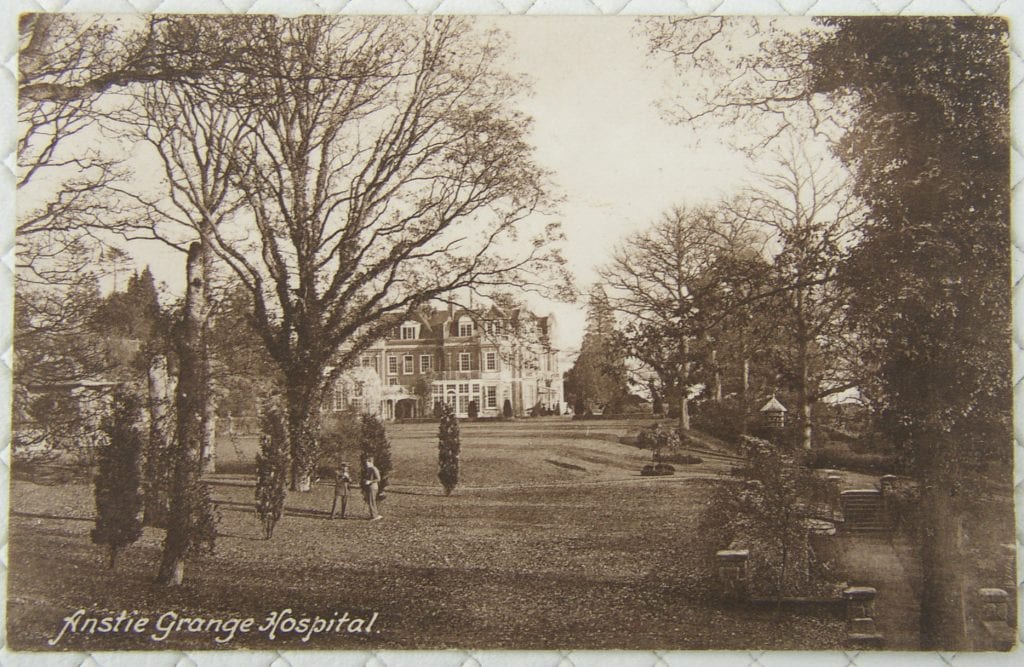
One of the mansions that saw great change was Anstie Grange, near Coldharbour.
In October 1916 Cuthbert Heath offered up his home for use as a hospital for officers. The hospital was fitted out and run at his own expense. It was run by his niece, Commandant Dorothy ‘Dot’ Gore Brown, and staffed by qualified nurses and VAD assistants. Many of the VAD workers were local women.
Casualties were brought by boat from France and then by ambulance train to Holmwood station. Trains often arrived late at night and ambulances from Aldershot drove the wounded to Anstie in convoy. Stretcher bearers gathered in front of the house to await arrivals. The Commandant, in a red uniform with a long white veil, held up a lantern in the doorway.
In February 1917 an unexpected patient arrived on one of these convoys: Cuthbert Heath’s nephew, Frederick.
At Christmas 1916 the wards were decked with local holly. A service led by Canon Chichester of St Martin’s was followed by a turkey dinner and visits by the officers’ families. On Boxing Day the Heaths ate with the officers and stockings filled with presents were hidden for each of the men. After dinner bed patients were carried downstairs to watch an evening of dancing. The celebrations culminated with Auld Lang Syne and the National Anthem.
Nearly 700 officers passed through Anstie Grange. Fifty were cared for at any one time by a similar number of staff. Only two did not survive.
After the war Cuthbert Heath was awarded the OBE for his ‘practical patriotism’.
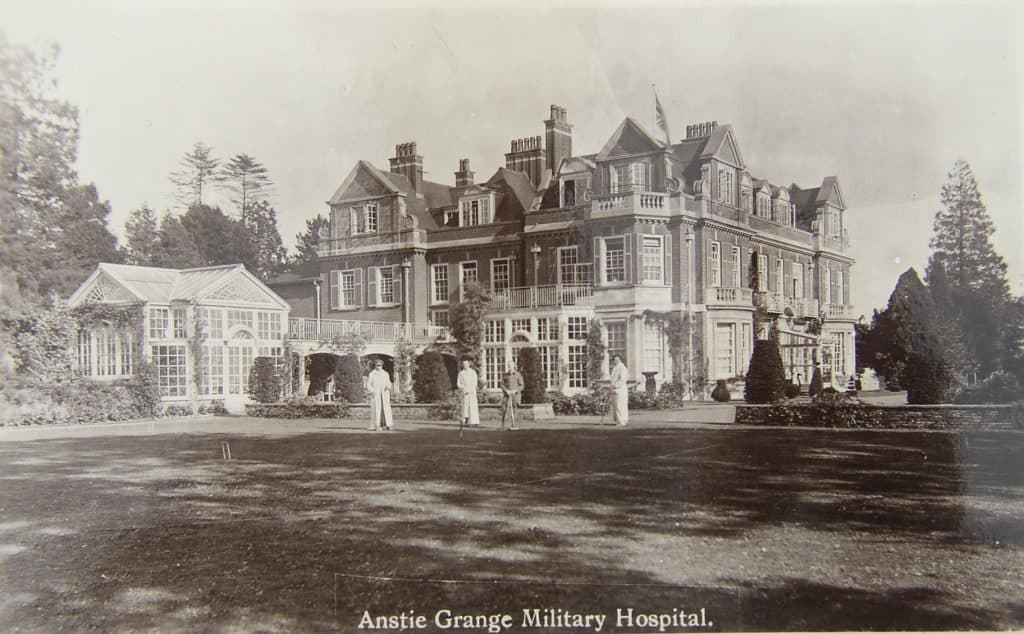
Convalescing officers can be seen playing croquet. Anstie was a 26-bedroomed mansion which hosted shooting parties, hunts and balls. It employed more than twenty indoor staff plus gardeners, stablemen and chauffeurs. On the outbreak of war the indoor staff was cut to three. In the Second World War the house was again occupied by the military when it housed the headquarters of Queen Alexandra’s Royal Military Nurses. The family never returned and Anstie is now split into apartments.
Cuthbert Heath
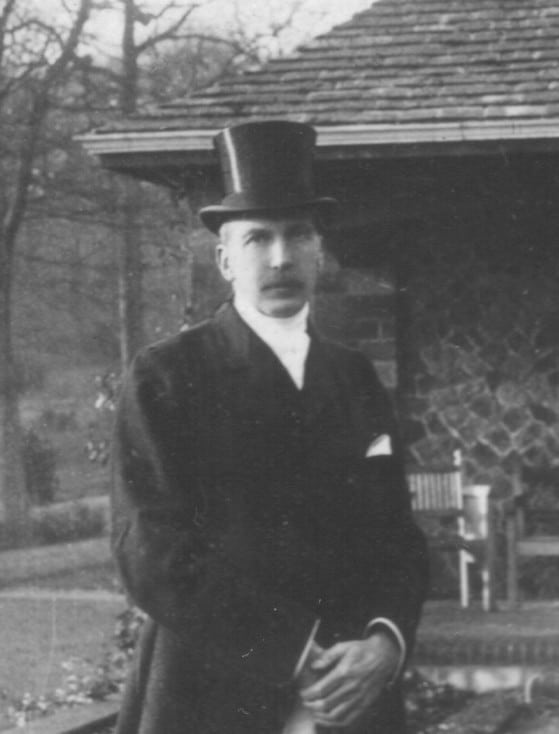
Cuthbert Eden Heath OBE (1859-1939) was born into a military family. His father had been an admiral, one of his brothers was a major general, another an admiral. But Cuthbert could not join the military as he had hearing difficulties.
Thought the dullard of his family, he made a fortune in insurance with Lloyds of London. A far-sighted innovator, he transformed Lloyds from a marine insurer to a general insurer of international renown. He was responsible for issuing the first motor insurance and burglary policies.
He loved hunting and bankrolled the Surrey Union Hunt throughout the war, writing regular cheques for £500 to keep the hunt going despite shortages of horses and the conscription of hunt staff. (The government encouraged hunting in order to maintain horse stocks.)
When war broke out Cuthbert spoke at recruitment meetings, gave pep talks at Anstie to local men who volunteered, and set up a recruitment office at Lloyds. His son and his seven nephews were in uniform before the end of 1914.
The Heath Family
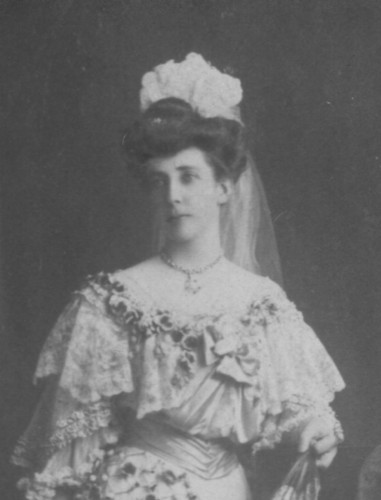
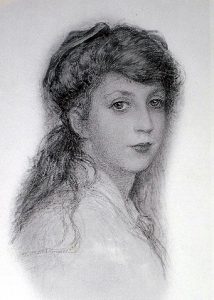
Cuthbert Heath’s daughter, Genesta, who worked as a pantry maid at the hospital. She recalled long working days for the staff.
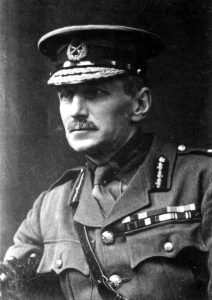
Cuthbert Heath’s brother, Major General Sir Gerard Moore Heath. He was Chief Engineer to the First Army in France.
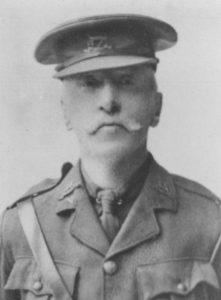
Cuthbert Heath’s brother, Arthur Leopold Raymond Heath. He lived at nearby Kitlands but he and his wife, Flora, were barred from Anstie after a falling out between Flora and Cuthbert’s wife. When their injured son, Frederick, arrived unexpectedly at Anstie as a patient, Caroline Heath lifted her prohibition to allow his parents to walk over daily to see him. Their other son, Raymond, had been killed in 1915.
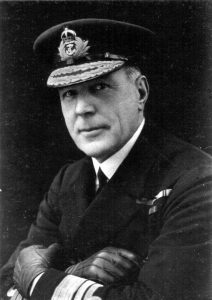
Admiral Sir Herbert Heath. He was the senior admiral of the cruiser line at the Battle of Jutland in May 1916. He went on to command the Channel Fleet and became Second Sea Lord and chief of Naval personnel in 1917.
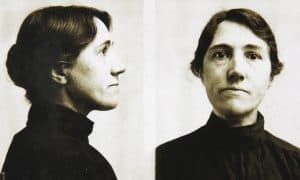
The Germans made attempts to infiltrate the well-connected Anstie household. In 1915 a woman purporting to be Danish was arrested after applying for a job as Genesta Heath’s governess; she turned out to be a German spy. Eva de Bonenville was arrested two months after her interview at Anstie, during which Heath’s wife, noting her fluent German, asked how they were to know that she was not a spy. She was convicted of spying, condemned to death and sent to Holloway. On appeal the sentence was commuted to penal servitude for life.
Next : Voluntary Aid Nurses

